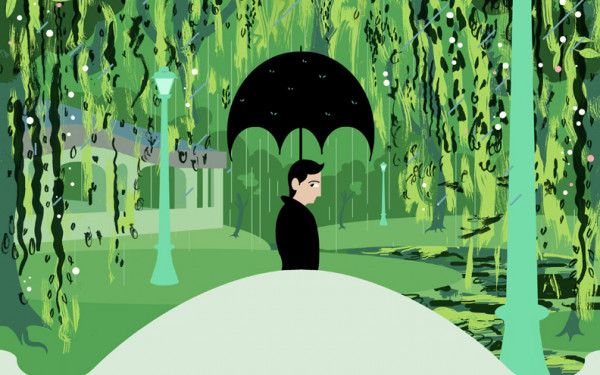Short Listing
Alexander MacLeod Grabs Giller Nod for Light Lifting, Makes It to Montreal
Until recently, Alexander MacLeod was not a name you’d necessarily recognize when it came to Canadian literature.
That’s about to change.
MacLeod, the son of acclaimed author and Order of Canada holder Alistair MacLeod, released his debut book, the short story collection Light Lifting, last month. It didn’t take long for the literary establishment to take notice.
“I got the book on a Saturday evening,” said MacLeod. “I read it for the first time on Sunday,” and it was included on the Scotiabank Giller Prize’s 2010 longlist “on Monday morning.”
That was Sept. 20, and since then MacLeod’s life has been moving at a lightning pace.
“All the outside attention has definitely changed our routine at home,” noted MacLeod. “We’ve managed okay, thanks to the generosity of my wife and our adaptable kids, but it’s a good problem to have and it’s a once-in-a-lifetime thing.”
While the surprise and intensity of the shock may be once-in-a-lifetime—MacLeod was expecting “a few months or even more than a year” before the book would receive any recognition—the Giller nod might not be.
Light Lifting features a relatively young writer (MacLeod is 38) flexing some serious literary muscle. There isn’t anything flashy in the collection, but that’s part of the point. It’s a collection of seven stories set in Windsor over the last decade or two that feature seven different main characters.
MacLeod avoided the temptation to link the stories together, and in not featuring the same characters, places or events in more than one, gives the reader a more complete and varied picture of the city.
There are the construction workers and the young, poor families; there are the athletes and the summer jobs; the ex-auto plant workers whose lives are so intertwined with the minivans they were a part of producing. Light Lifting is one of those minivans—fresh off the assembly line, years in the planning and making, meticulously crafted, versatile, useful, sound. There is not a weak link to be found.
Which is fitting in a collection that focuses so much on physical labour. The characters run, bike, swim, fistfight, lay bricks. They walk 30 miles when the situation calls for it. They’re caught in car crashes, in the undertow, in lice infestations, in storms, in hospital waiting rooms, in skin sunburned so badly it turns purple.
There is constantly a sense of the human body and its physicality. To read these stories is to inhabit the characters’ bodies. Though MacLeod admitted that this thread wasn’t an intentional one, it is one of the collection’s biggest strengths and most noticeable aspects.
“An old lady who refuses to be institutionalized and won’t give up on her house is backing up her emotional desire with a physical action,” MacLeod explained, referring to a minor character in “The Loop,” the fifth story in the collection.
“Every time she goes out to shovel the sidewalk by herself she’s doing and saying something with that movement—same thing for the young couple [from “Wonder About Parents”] who have to change stinky diapers or check for lice or take the kid to the hospital. Their love for their children or their love for each other takes on a physical manifestation. We can see and learn something about the full depth of their emotional commitment by monitoring their actions, the way they move through their worlds.”
Perhaps nowhere is this love more apparent than in the final story, “The Number Three,” which details the relationship between a father, his daughter, and the myriad different incarnations of the Dodge Caravan. While this might seem a strange subject to tackle, it isn’t if you’ve grown up in Windsor, as MacLeod has.
“I never worked in [the Chrysler] plant, but plenty of my friends and relatives did and continue to. My publisher, Dan Wells, worked in there for seven years, following in the footsteps of his dad,” said MacLeod, noting that the manufacturing plant and the van produced there “matter to almost everybody in Windsor.”
“I was trying to think about how we are all connected to this object whether we work on it directly or not,” he added.
That drive—to write about the things that connect people—has served MacLeod well. Though the stories in Light Lifting are culled from different periods in his life, “it was only when they were pushed up against each other” that he noticed “all the common threads flowing between them, currents of concerns that had been there for more than a decade, running under the surface.”
Thanks to the Giller nomination, however, the stories themselves have breached—and it wouldn’t be too surprising if they help MacLeod stay afloat for some time.
MacLeod will be reading from Light Lifting at Drawn and Quarterly Bookstore (211 Bernard St. W.) on Oct. 25. The event begins at 7:00 p.m. and also features writers A.J. Somerset, who is launching his novel Combat Camera, and Harold Hoefle, who’ll be reading from The Mountain Clinic.
A full transcript of this interview is available at http://thelinknewspaper.ca/blog/entry/486
This article originally appeared in Volume 31, Issue 10, published October 19, 2010.







